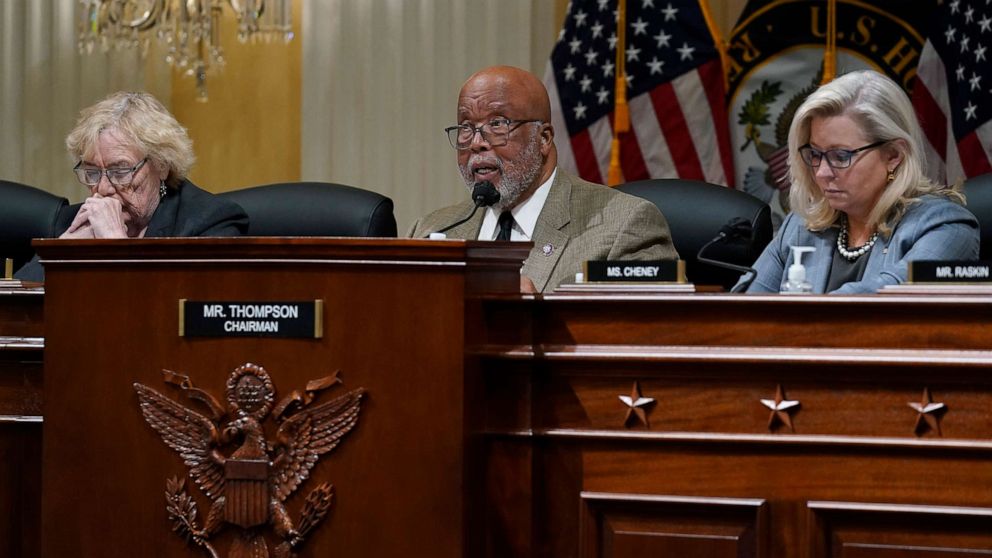Jan. 6 hearings: How to watch and what to expect
The House select committee investigating the Jan. 6 attack on the U.S. Capitol has promised to reveal new information in prime time Thursday as it seeks to capture the public's attention and lay out how it says American democracy came close to being subverted.
Summing up an 11-month-long investigation, Thursday's hearing kicks off at 8 p.m. EDT and will be the first of six this month where the committee says it will explain a "multi-step, coordinated attempt" by former President Donald Trump and his allies to overturn the results of the 2020 presidential election and, for the time in U.S history, stop a peaceful transfer of power.
The nine-member panel has collected more than 140,000 documents and 1,000 witness interviews throughout the course of the investigation, and members have promised to introduce never-before-seen videos and exhibits that they say will shock the public.
ABC News Television Network will air special coverage of the hearing at 8 p.m. EDT, and ABC News Live will carry gavel-to-gavel coverage of each hearing in June.
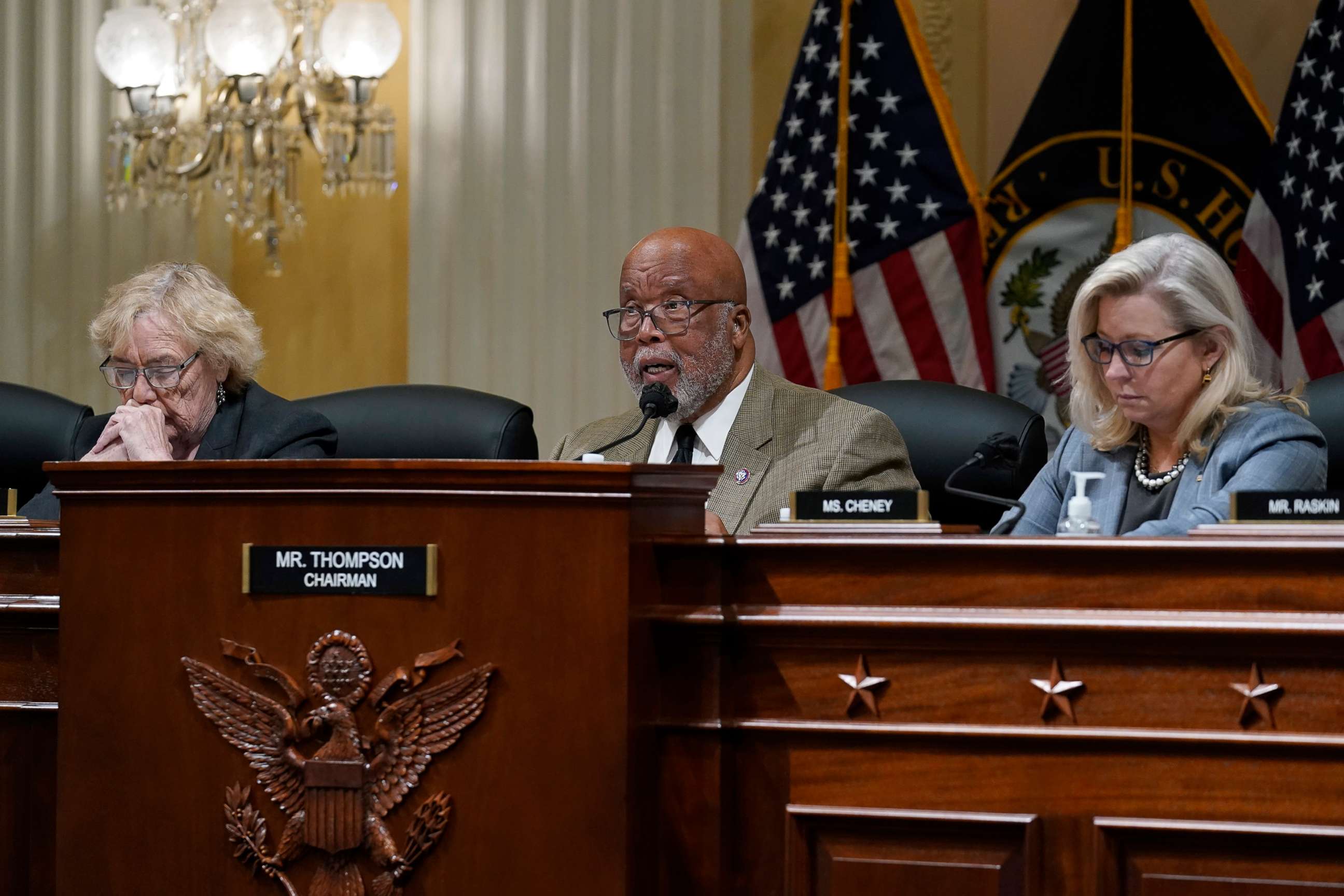
"There's a lot that's unseen," one committee aide said Wednesday in a briefing with reporters. "The select committee is also going to lay out a clear indication of ongoing threats to American democracy."
What is the select committee and who sits on it?
A select committee is a congressional committee appointed to perform a special function beyond the capacity of an already standing committee. For example, Americans might remember a House select committee was previously formed to investigate the 2012 attack on a U.S. diplomatic compound in Benghazi.
After Senate Republicans killed a proposal for an independent, bipartisan commission that would have given Republicans equal representation to investigate the Capitol attack -- similar to what Congress approved after the Sept. 11 attacks -- the House voted to form a select committee last summer.
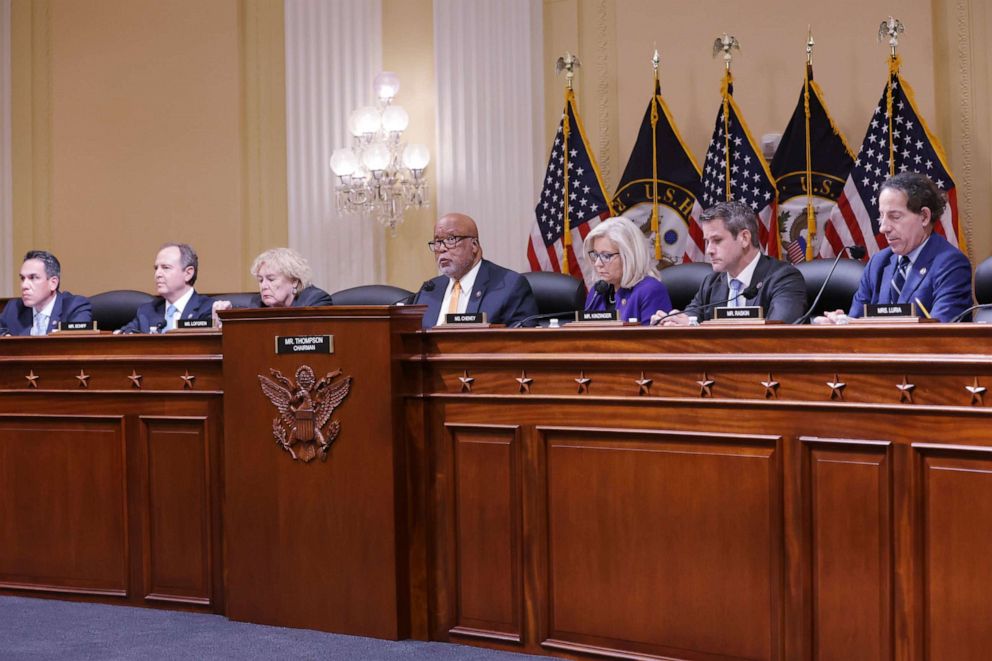
The panel was designed to consist of 13 members, with five appointed in consultation with the minority leader, but after House Speaker Nancy Pelosi rejected two of Republican Leader Kevin McCarthy's committee nominees -- Ohio Rep. Jim Jordan and Indiana Rep. Jim Banks -- over concerns false statements they made around the 2020 election -- McCarthy pulled all five of his nominees. Echoing language used by Trump, he deemed the investigation a "sham process" before it began.
Pelosi ultimately appointed the only two Republicans who voted in favor of the committee -- Reps. Liz Cheney of Wyoming and Adam Kinzinger of Illinois -- and seven Democrats -- Chairman Bennie Thompson of Mississippi, Zoe Lofgren of California, Adam Schiff of California, Pete Aguilar of California, Stephanie Murphy of Florida, Jamie Raskin of Maryland and Elaine Luria, of Virginia -- to probe the insurrection.
"It's bipartisan, and we have a quorum. Staff is being hired to do the job," Pelosi said at the time. "We're there to get the truth, not to get Trump."
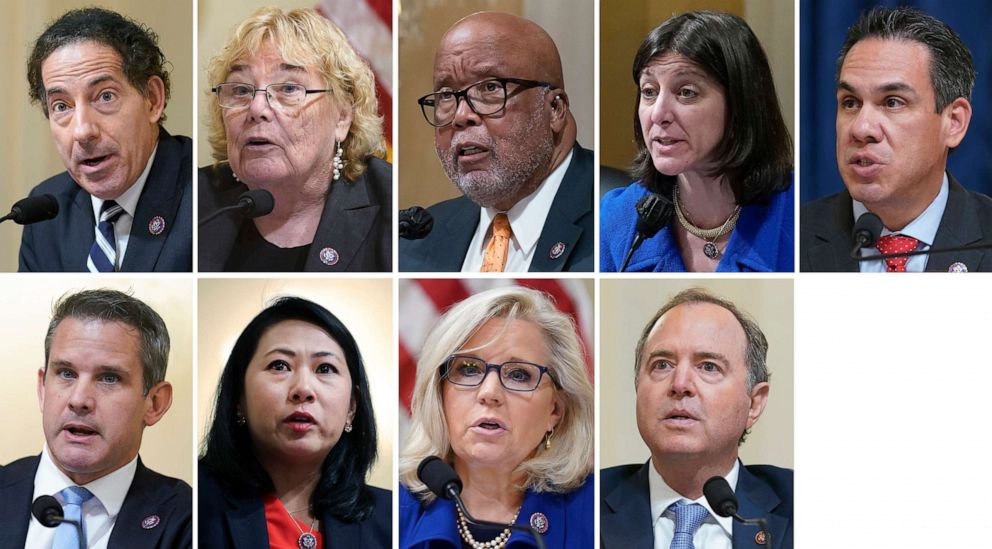
Nearly a year later, Americans can expect different lawmakers of the nine-member committee to take the lead on various hearing days to guide the presentations.
What can viewers expect to see Thursday?
Aides described the first major public hearing in prime time as a "preview" of what to expect in subsequent hearings.
Witnesses planned for Thursday include documentary filmmaker Nick Quested, who was embedded with the extremist far-right group the Proud Boys during the assault on the Capitol, and Capitol Police officer Caroline Edwards, who suffered a traumatic brain injury during the attack when rioters pushed her to the ground.
"We're going to learn about where they were at that time when these rioters initially breached the Capitol," a committee aide told reporters.
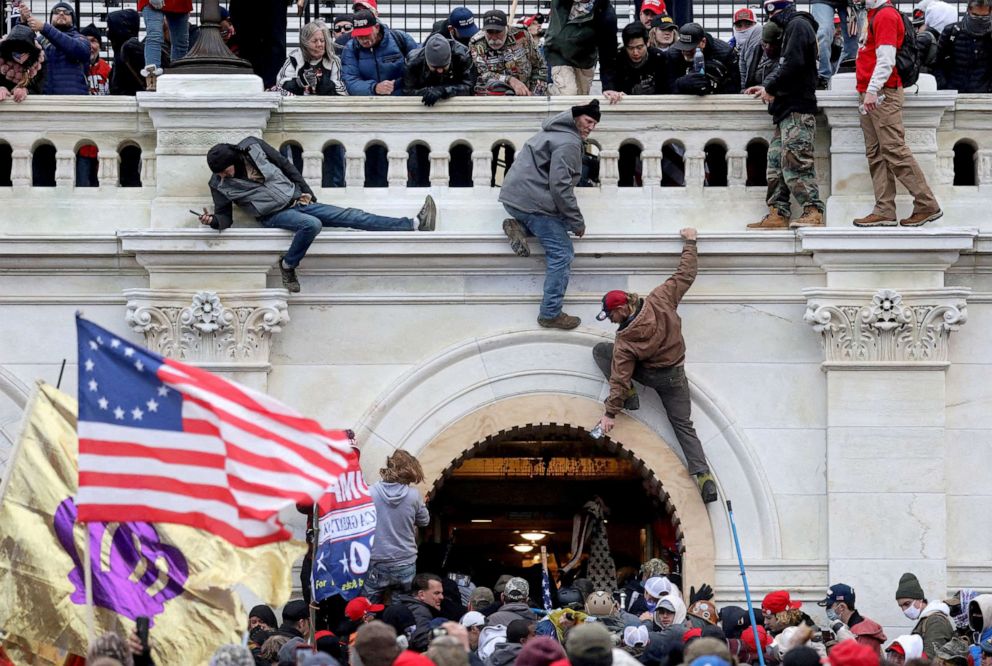
The panel will also feature new excerpts of videotaped interviews with Trump administration and White House officials, campaign officials and family members. ABC has reported previously that daughter Ivanka Trump, son-in-law Jared Kushner and son Donald Trump Jr. have all testified.
Unlike other congressional hearings, Thursday will be a mixture of live and taped testimony and blockbuster video production, designed to capture the public's attention.
Former ABC News President James Goldston, a seasoned television executive, started working with the committee several weeks ago to help produce the hearing, a development first reported by Axios and confirmed to ABC News by congressional sources. The committee declined to comment on "personnel matters" when asked about the decision to enlist Goldston's help.
While most major news networks are expected to carry Thursday's hearing live in their prime-time slot, Fox News announced this week that their prime-time programs will only cover the hearings "as news warrants." Instead, Fox Business will be covering the hearings live, stirring backlash. Fox News averaged 1.5 million viewers at any given time last month, while Fox Business averaged 136,000.
When are the next hearings?
The select committee's next hearings are slated for Monday, June 13, and Wednesday, June 15, and Thursday, June 16.
The committee has not yet finalized witnesses for the next hearings, but they could include state election officials, ex-Trump Justice Department officials who pushed back on attempts to investigate voter fraud, and even White House lawyers familiar with Trump's attempts to pressure former Vice President Mike Pence to overturn the election results.
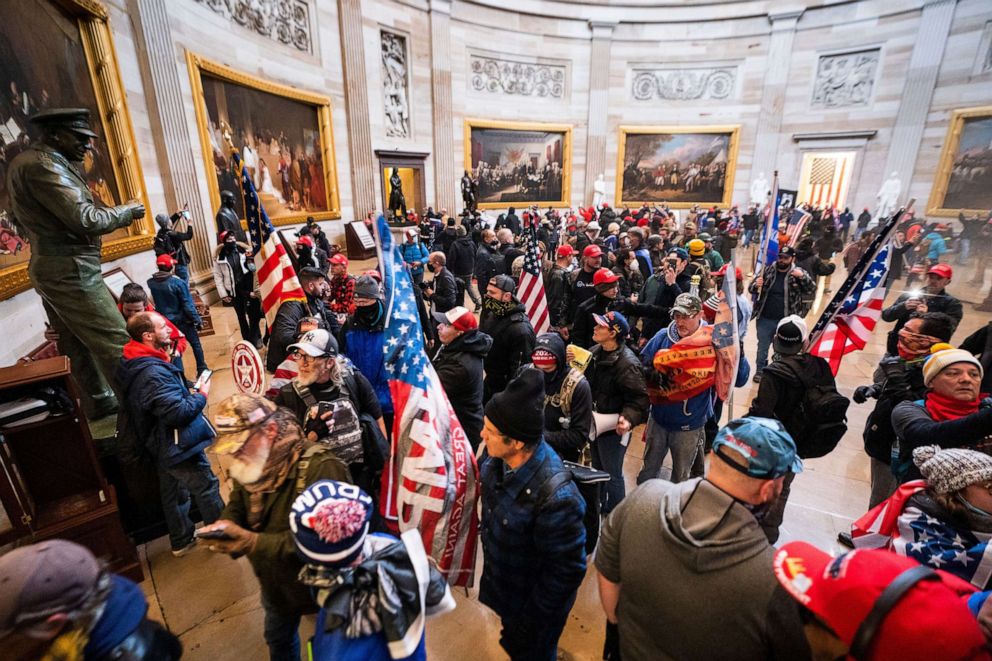
With at least two other hearings planned for June, the committee has also not ruled out the possibility of adding more hearings in the future. So far, Thursday's is the only one slated for prime-time.
The panel also plans to release a full report on its findings, including legislative recommendations on reforms, at some point this fall -- coinciding with the 2022 midterm elections.
Is this the first hearing?
Although Thursday marks the panel's first hearing in prime-time, it is not the first public hearing.
The select committee held its first hearing last July, when lawmakers heard dramatic, emotional accounts from law enforcement officers who defended the Capitol on Jan. 6 and said they feared for their lives.
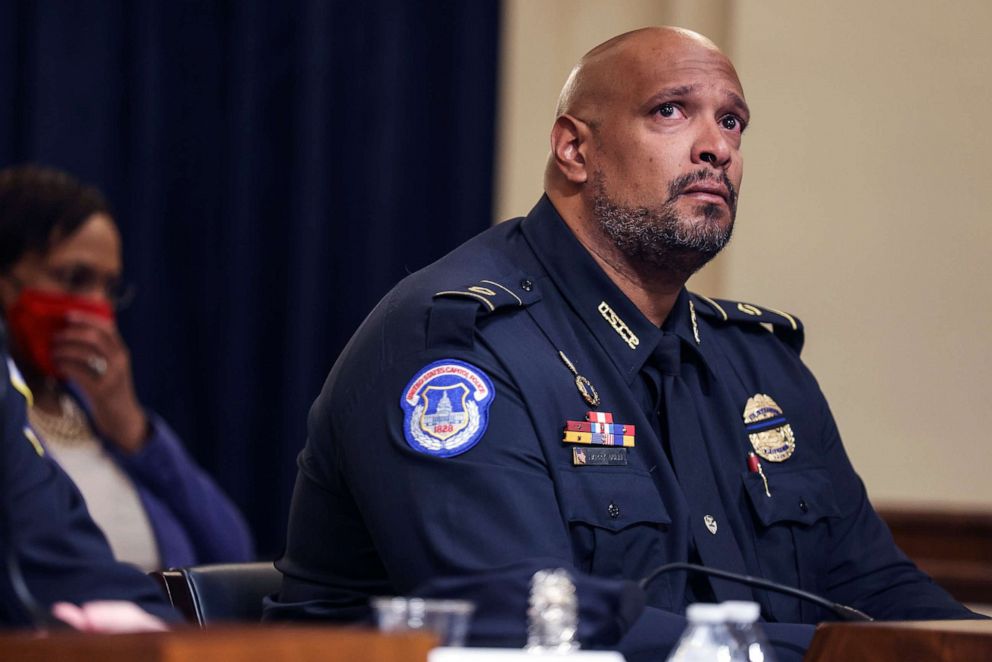
"I sat down on the bench in the Rotunda with a friend of mine, who is also a Black Capitol Police officer and told him about the racial slurs I endured. I became very emotional and began yelling, 'How the blank could something like this happen? Is this America?'" recounted Capitol Police Officer Harry Dunn. "I began sobbing."
In her opening statement that day, Cheney made the committee's intentions clear.
"We cannot leave the violence of January 6th and its causes uninvestigated," she said. "If those responsible are not held accountable, and if Congress does not act responsibly, this will remain a cancer on our constitutional republic."
ABC News' Katherine Faulders and Benjamin Siegel contributed to this report.
